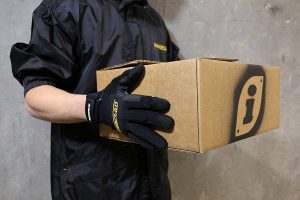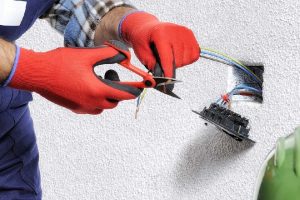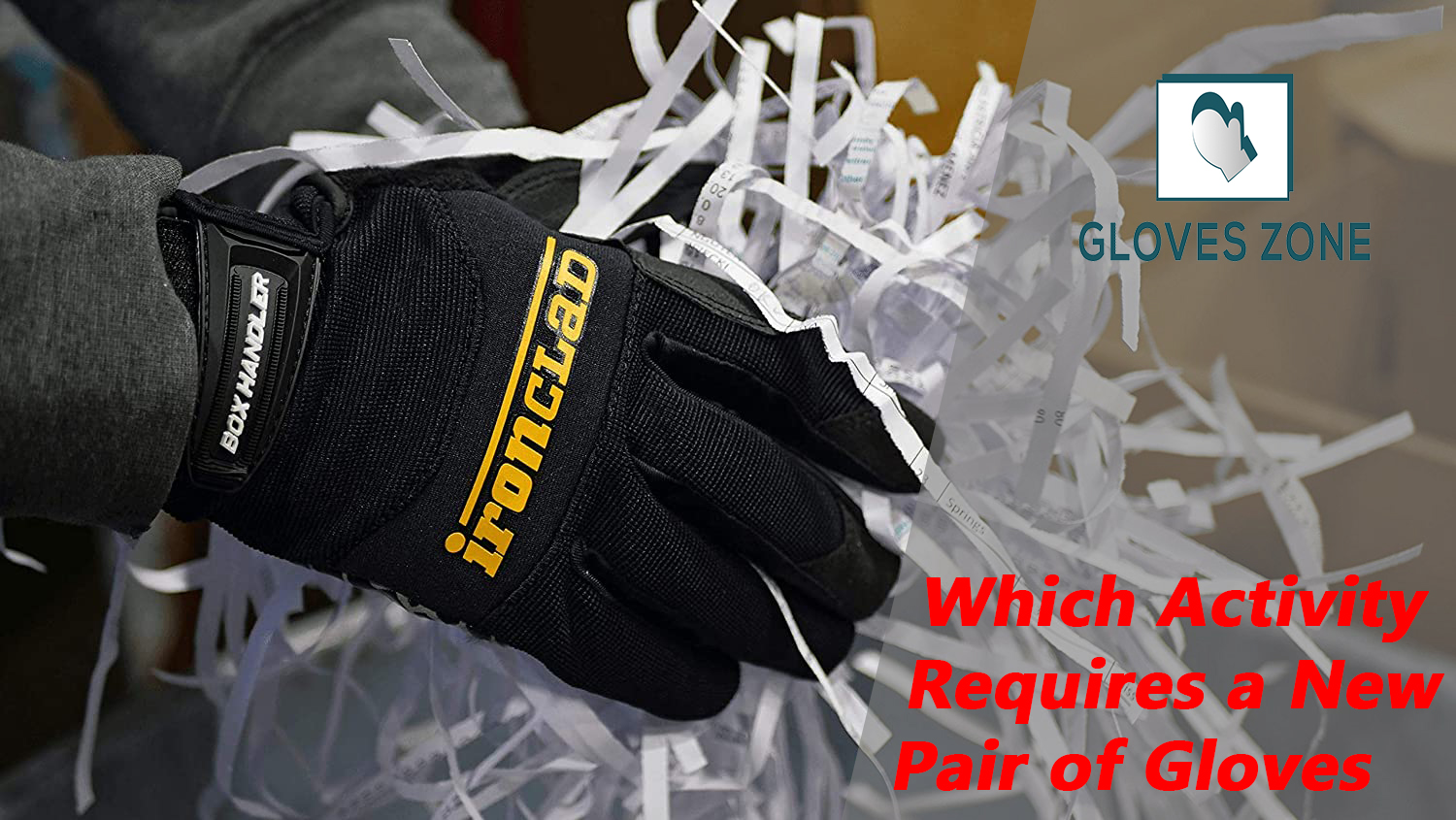An array of different types of work jobs require a change of gloves either at the start or between steps, to ensure that safe operating procedures are followed. Gloves, also known as “personal protective equipment”, are produced in all types of materials and serve different job purposes. It’s always important to develop an understanding of when you need a fresh pair so that you keep yourself and others around you safe and clean. In this article, we’ve listed some of the jobs where gloves play a pivotal role in operating procedures so that you’re informed and prepared to work safely!
1. Football Gloves
America loves football! Well, who doesn’t? This is why it’s very important to note that football is one of those sports where protective gear is extremely important. The overall nature of the game is aggressive, which can be detrimental and even brutal to one’s fingers. Football gloves are made of a combination of:
- polymer adhesion
- formulated with silicone and
- Oxygen

A solid wrist closure cut supports the players’
- Muscles
- Skin layering
- Grip Support
- Glove movement
- Securing grip
- Thought and action
One of the most important purposes of football gloves is securing grip which is very essential while handling the ball. The gripping nature of these gloves ensures that the ball is not torn from the player too easily. Performance support is a key role in these gloves. Goalkeeper gloves also have an embossed backhand. It is imperative for the goalkeeper, especially, to have gloves on at all times on the field. A goalkeeper’s gloves are even thicker than those of the other players and serve a more protection-oriented purpose.
Washing football gloves is a procedure that prescribes careful thought and action. First, you need to wipe off the thick dirt and brush off any loose debris from the grass field. Next, you flip them inside-out and place them into a breathable case, such as a pillowcase which will allow water to pass through. Place it in the washing machine with a ‘cold’ and ‘gentle’ or ‘delicate’ wash spin setting. Lastly, let them air dry as heat may cause their substance to deteriorate.
2. Yoga Gloves
What most people don’t know is that yoga can be:
- An intense form of exercise
- Gets you active and moving
- Pressure on different body parts

It may seem to be gentle body movement but can place a lot of pressure on various parts of the body, including your wrist. Thus, yoga is an exercise that has its specialized form of gloves to enable a steady practice. Mostly, the gloves are made of
- rubber or
- a form of silicone
- padding
- gel pad
All of these help in supporting traction. Some are equipped with the additional benefit of padding for wrist relief. Some gloves also carry a gel pad which makes it easier for one to come into contact with the yoga mat. The power of yoga is now in your hands.
3. Cardboard-box Handling Gloves
Though carboard-box handling may appear to be a minimalistic job, it requires great safety for the following reasons:
- Heavy objects
- Sharp objects
- A slippery surface can loosen the grip
- Difficult to carry different sizes together
Handling cardboard boxes to avoid getting hurt at any point as they are often both heavy and sharp. Cardboard box handlers must treat gloves as important safety equipment. For instance, if you work at UPS, FedEx, or any other delivery service, a lot of your time would be spent on transporting, carrying, and handling boxes that may test your strength and put excess pressure on your skin.

Thus, most carboard gloves are made of a blend of:
- nylon,
- polyester,
- spandex, and
- cotton
- sweat management material
- insulation (for winter)
These are optimal choices for gloves that provide a firm grip and support the carry of the weights. The gloves should be well-padded with a level of dexterity that ensures that packages don’t slip out of your hands. Taking care of seasonal variations is also necessary. During the summer, you want something that can drain moisture for sweat management. On the other hand, insulation material in gloves is important whilst handling cardboard boxes during winter.
Cardboard handling gloves are machine-washable so easy and hassle-free clean-up is a guarantee. As with most gloves, air drying is best to make sure that all water content is evaporated. You can usually find these gloves easily in the market and at low prices, advocating their beneficial usage.
4. Fencing Gloves
Gloves are an important aspect of a fencer’s set of gear! Thus, a fencer must choose the best option available to him or her. Remember, you’re trying to stab your opponent, not yourself! A large variety of fencing gloves exists in the market both online and at brick-and-mortar shops. Fencing is a sport that doesn’t just depend upon skill but also on maintaining proper equipment during the exercise.
It is best to stock up on a glove that is usable for all kinds of fencing including:
- soil,
- saber,
- epee
- barbed wire

It is also useful to check if the gloves are certified by FIE (International Fencing Federation) to decree a trustable value to the pair you purchase. If you’re working for barbed wire fencing, then it is particularly important to ensure thick padding that resists abrasions and punctures against the sharp tips of concertina wire. Fencing gloves are usually at a cuff length above your wrist to provide all-rounded protection for your lower arm against scratches and cuts.
Despite their thick layering, fencing gloves are pliable – they can strongly grip a variety of tools that you may be working with. Given that your repeatedly put force on the puncturing process, certified fence gloves will enable easy work practice throughout.
5. Electrical Work Gloves
Electric gloves, also known as insulating gloves, offer electrical workers:
- optimal protection
- safety amid high-risk electrical settings
- high voltage jolts
- ability to work on power lines

One-too-many times, gloves can be the only thing between a person and a high-voltage jolt. Thus, wearing the right protective gloves can be a matter of life and death for electrical workers.
Electric gloves are made of:
- Dielectric material
- Rubber
- Leather
- Synthetic fabric
- Anti-static material
Lineman gloves serve to protect these people working on power lines from dangerous electric shocks and jolts. Electric gloves are made from a blend of rubber material with anti-static properties whereas some are made of leather and synthetic fabric together. All of these variants must be lab tested and certified before they are put to usage in high-risk situations, undergoing all the necessary tests to prove their safety.
Final Thoughts
We often undermine the importance of wearing gloves whilst doing various activities, integral to our everyday lives. It is important to understand which kinds of gloves are useful in different situations so that we can ascertain the safety and protection of workers in high-risk or detrimental situations.

I am not a good blogger but I started blogging when I was in my college. one day scrolling my social media pages and top of the page one notification was coming like this “ earn money from blogging”.then I clicked that notification. After that, I was confused that which niche is better for me. Finally, I selected the niche and I was comfortable with that glove’s reviewer.

